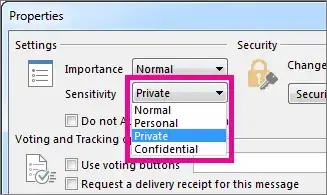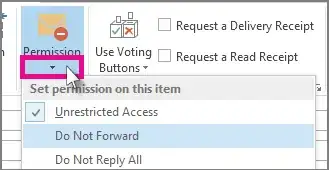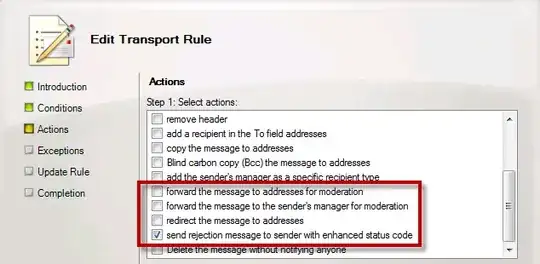An alternate answer and perspective, hopefully much simpler: Using sensitivity headers + IRM. Read on...
Outlook/Exchange already supports "sensitivity" properties of an email, but they are advisory only until you enable IRM. In other words, I can send you an email and set it as sensitivity=Private, but when you view the email, you simply see an info tip the email is private -- you could still forward it, or worse your OOF would still forward it. When you enable IRM, you could set a policy that restricts forwarding of emails with Personal sensitivity (and probably as well Private and Confidential sensitivities).
This solution would have side benefit that if Mary sends Bill a Private email about how bad the boss smells, but Bill is OOF, the email will not be forwarded. I would think that users would expect this by default: if you send someone a "Private" email, you don't expect it to be auto-forwarded to someone else.
The crux of in the approach is you will need to get the new HR program to set the sensitivity header on the email. If not possible, there's still hope: you might be able to have Exchange use a server-side rule that tags all emails from the HR address as sensitivity Personal. These sensitivity headers are not as proprietary as you'd think -- Microsoft actually followed RFC 2156 https://www.rfc-editor.org/rfc/rfc2156#section-5.3.4. So in theory, a non-Microsoft sender could activiate these sensitivity flags on an email. My instinct is that I even good-old Unix sendmail could send emails as Personal by adding the flag in the MIME header. Haven't tested yet -- would love to see if it works for you.
Less maintenance. If you're the Exchange admin, you want a simple solution. If 20 departments want some emails to not auto-forward, you don't want to set up and maintain 20 rules. You would just tell them that they need to set the email header as Personal, Private, or Confidential, as appropriate. One rule to rule them all.
Let the business decide which ones they want to mark as sensitive, and let Exchange/Outlook use IRM to uphold the business' wishes.
Best yet, if you have an HR system that sends different kinds of emails, some are personal (about your disability benefits regarding your recent tuberculosis), some are not so personal (letting people know there's still 7 days left in HR open enrollment; letting people know there's going to be maintenance this weekend and the HR system will be unavailable Sunday ...).
Serverfault: Which mail header does Outlook 2003+ use to indicate the confidentiality?




